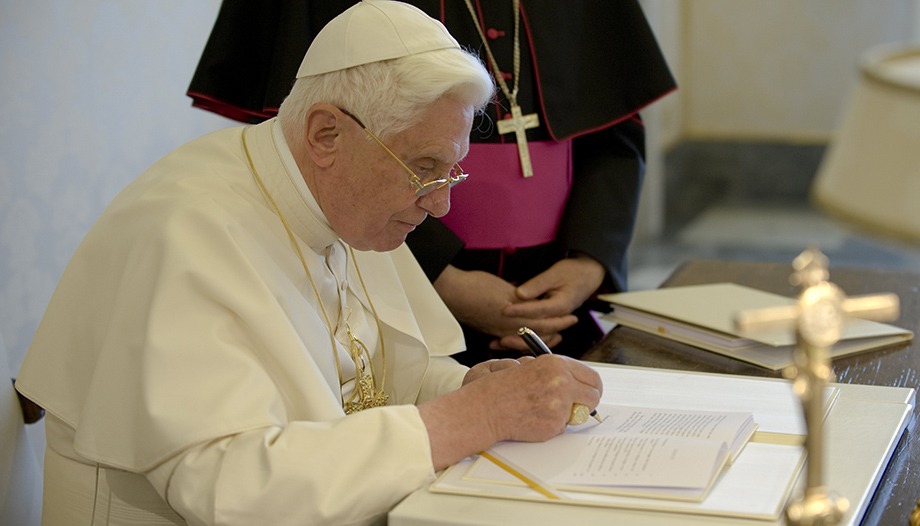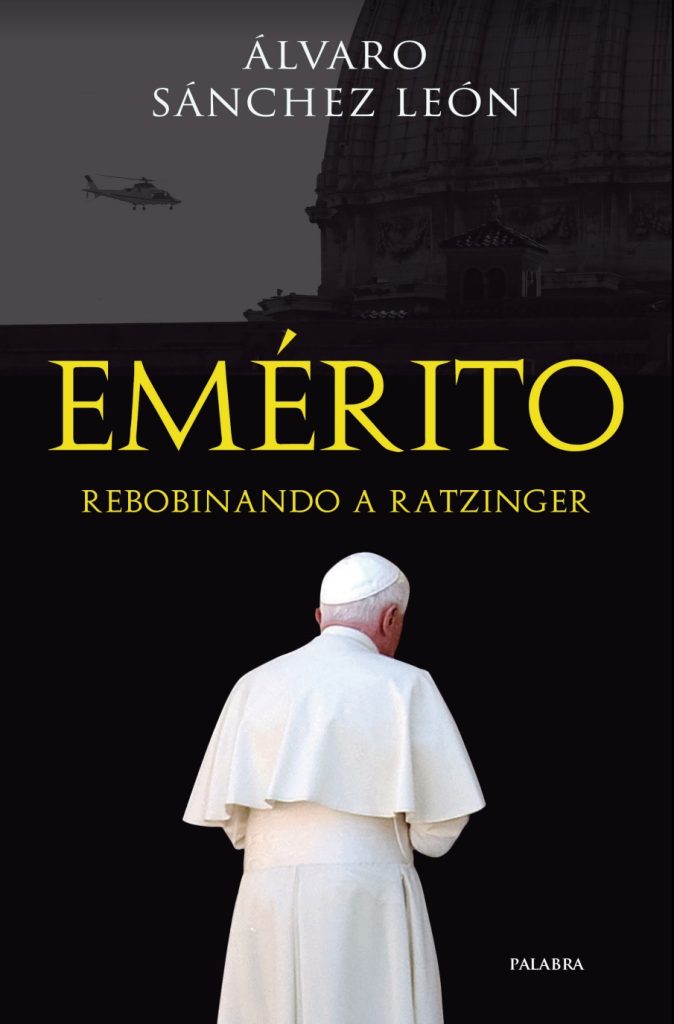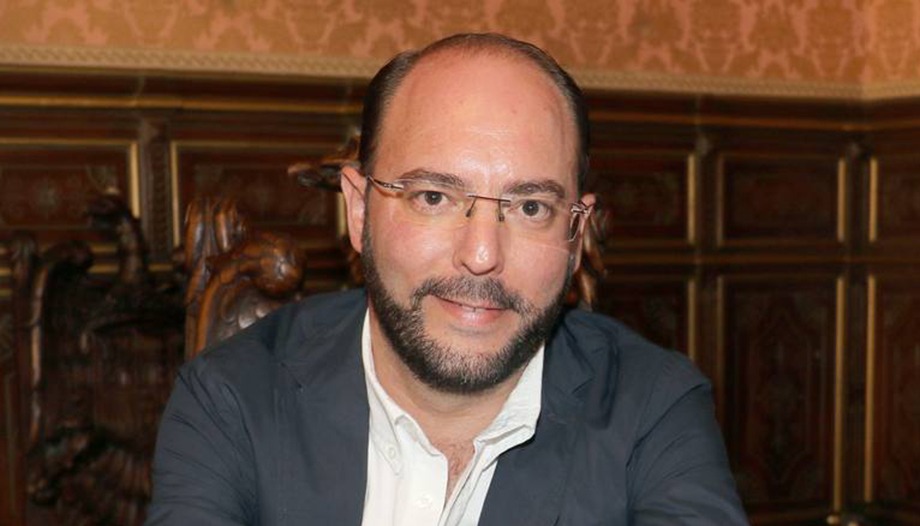Emeritus. Rewinding Ratzinger signed by the journalist Álvaro Sánchez Leon draws a multicolored portrait of the Pope Benedict XVI. More than 40 close testimonies of collaborators, friends, biographers of Ratzinger and Vaticanists make up a unique and surprising picture that presents us the priest, neighbor of Borgo Pio and almost unknown, the profound and serene theologian, the humble pope who stepped aside despite the incomprehension of many.
Álvaro Sánchez León (Seville, 1979) is a freelance journalist specialized in interviews and social reports and author of, among other titles On earth as in heaven. Stories with soul, heart and life by Javier Echevarría. (Rialp, 2018) or Spain in pause (2022) talks with Omnes about this new book about a Benedict XVI different and, at the same time, close.
At Emeritus. Rewinding Ratzinger You offer different portraits of Benedict XVI. What has struck you the most? Has the Pope Emeritus also been a new discovery for you?
-This book is a unique portrait painted with words, but made with different journalistic techniques. With the voices of people who have dealt with him first hand, with his texts, his words, his actions and his imprint, I try to focus directly on the soul of a person who was Pope and who will always be an oxygen tank for the whole Church.
My professional specialty is interviews that seek to get to know people in depth. In this case, I do a polyphonic interview with the desire to hit the target of one of the most powerful world figures of our time.
I have been struck by many things: the authentic goodness, the close intelligence, the coherence, the simplicity... Ratzinger's life is a straight upward line. If one follows it closely, one also rises.
For me it has been a discovery to get deep into her soul, into her story, into the beyond of her gaze, and to see to what extent a person who prays, who thinks and lives naturally what she loves can transform everything she touches with a marvelous discretion.
You also collected portraits of the closest Ratzinger, that discreet priest who lived in Borgo Pio, what was the Ratzinger of "on foot" like?
-Joseph Ratzinger has been - is! - a simple person who has been truly understood only by simple people, which is why the Roman neighborhood of Borgo Pio, where he has lived since he landed in Rome to lead the Congregation for the Doctrine of the Faith until he was elected Pope, is the urban sauce where we know the person better, without curial attachments, and without academic recognitions.
The doorman of his building in Piazza della Città Leonina, the shoemaker, the tailor, the baker or the waiter in front of his house remember him as a good priest with an aversion to self-importance. Shy, but close.
Years have passed, and all these crucial anonymous people I have interviewed are excited to talk about him, because after opening their souls to him, listening to his stories and contemplating his kindness, they consider him as someone of the family whom they had the honor of meeting on the rebound. For many of them, these neighborhood encounters have probably changed their lives.
Ratzinger is an interesting model for many men of the ecclesiastical hierarchy to meditate once again on how to exercise an office in the Church and why positions do not matter if they do not serve to become saints along the way.
Álvaro Sánchez León. Author of "Emeritus. Rewinding Ratzinger."
The priestly vocation and the life of priests has been one of Benedict XVI's theological "passions" What stands out about his conception of the priesthood and his vocation?
-The day of his ordination to the priesthood was the happiest day of his life, as he himself recounts in his autobiography. From an early age, young Joseph was brought up in a Christian home where following God's will was the best gift to oneself. With a world war as a pre-seminary, his priestly soul was forged in a very close inner relationship with the only model of his life: Jesus Christ.
Ratzinger was "a priest on fire" until the end of his days. His example without wanting to set an example may be the best lung for some priests whose hearts have been frozen by the circumstances of life.
A few things stand out about his priesthood, because they are attractive and very contagious. On the one hand, he understands the priesthood as a bridge between God and men that only works if his inner life is the fundamental pillar. On the other hand, his priesthood is open arms to all humanity. Although he had little pastoral practice, because he was immediately required by the hierarchy of the Church to become a bishop, cardinal, and Papaused his intellectual sensitivity to console, with his search for truth, many heads and many restless hearts.
From his biography without fireworks, his vision of the priest as a servant who does not drop his rings, even if they are Peter's rings, is appealing. Ratzinger is an interesting model for many men of the ecclesiastical hierarchy to meditate once again on how to exercise an office in the Church and why positions do not matter if they do not serve to become saints along the way.
And a final, very luminous note. Although Ratzinger wanted to be a priest since he was a child and asked the Kings for children's breviaries, he was never a clerical person. He understood perfectly the role of the laity in the Church and gave wings to all the movements that helped people to meet God in the midst of the world. He was such an all-rounder that his priestly ministry was an embrace of all humanity with the twin arms of reason and faith.

What legacy does Benedict XVI leave in the Church?
-When Benedict XVI resigned, this assessment was already made, although perhaps now that ten years have passed, we are more aware of that legacy. In any case, it is too soon to speak of a legacy with certainty.
My impression is that Benedict XVI left a Church that is clearer, more essential, more dependent on Jesus Christ, more balanced between reason and emotion, more serene, more faithful, and more modern in its openness to the intellectual peripheries.
There are many non-practicing people who live a powerful thirst for transcendence, but do not find an answer in the Church. For whatever reason. Many of these people feel very comfortable reading Benedict XVI, because they understand that their magisterio is so united to the Truth made flesh that it leaves no one indifferent. They see that his words are not theory, but life in the first person, and that is so authentic that it demolishes many prejudices and illuminates the illusions that satisfy the depths of our hearts.
The resignation of Benedict XVI has been one of the events that has marked the Church in recent decades and, at the same time, difficult to understand for many Catholics. How can this decision be understood?
-Anyone who knows Ratzinger's soul knows that a decision made in conscience can only be the result of a virtuous consensus between the will of God and the freedom of man.
There are thousands of thrillers and many movies about that resignation, but he himself explained on more than one occasion that it was a decision taken for health reasons. Period. There is no wax but what burns. That is how simple is the life of the Pope Emeritus. He, who is smart and humble, and who knows himself, knows that to be Pope he needs a vigor that he does not have, and he gives way.

Many people have better understood this great man after that discreet resignation. To go into the background voluntarily is something that is not understood in this society of spotlights, power and glory. To go down to the back room to pray for the unity of the Church and to be happy behind the curtain is a teaching like a temple.
Catholics who are dedicated to judging intentions will never understand that.
Catholics and non-Catholics who value the freedom of upright consciences not only respect, but applaud the life of truth of a courageous priest who has staked all his cards on the exclusive judgment of what God thinks.
Emeritus. Rewinding Ratzingerpublished by the editorial Palabra and which will soon be on sale, has counted on the testimonies, among others, of the former director of Vatican Communications during the pontificate of Benedict XVI, Federico Lombardi; his personal secretary, Monsignor Georg Gänswein or the prelate of the Opus Dei, Fernando Ocáriz, but also anonymous characters like other anonymous characters, such as the tailor, the shoemaker or the baker of Benedict XVI from his time as a cardinal.







